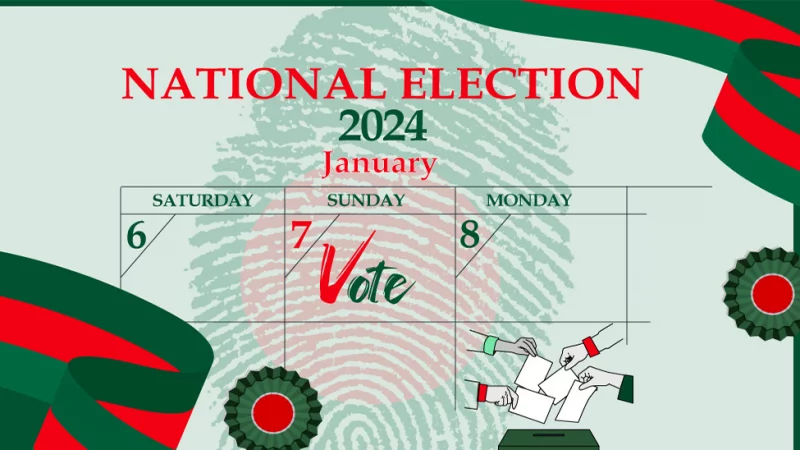WSJ: Bangladesh polls highlight Biden’s democracy promotion limits
অনলাইন নিউজ ডেক্স

In the upcoming general election in Bangladesh, the outcome appears all but set, as stated by the Wall Street Journal, as Prime Minister Sheikh Hasina, chief of the ruling Awami League, is set to secure a fourth consecutive term with the BNP boycotting the polls.
This would reflect a setback for US President Joe Biden, who has prioritized placing democracy at the forefront of US foreign policy with Bangladesh as a centrepiece, says a WSJ opinion piece titled “Bangladesh Shows the Limits of Biden’s ‘Democracy Promotion.’”
Sheikh Hasina, holding the longest tenure among currently serving elected female leaders globally, is a paradox, according to the article.
Despite achievements such as curbing militancy, ensuring civilian control over the army and lifting the country out of extreme poverty, her politics often mirror what the WSJ article describes as \"Game of Thrones\" dynamics, rather than a parliamentary democracy, with opponents facing “legal harassment or even violence.”
Biden\'s administration, aiming to distinguish itself from the Trump era, has sought to penalize Sheikh Hasina\'s government for human rights abuses and suppressing opposition through “mass arrests.” However, the prime minister has “thumbed her nose” at these efforts, Sadanand Dhume writes for the WSJ.
Leading up to the election, approximately 10,000 opposition BNP leaders and activists have been arrested, raising concerns about the fairness of the electoral process.
Analysts, such as Avinash Paliwal from the School of Oriental and African Studies in London, described the situation as a display of \"absolute brute force.\"
The failure of the US approach in Bangladesh is notable as the country seemed an ideal testing ground for Biden\'s values-centric foreign policy, the article posits.
Despite having economic leverage through Bangladesh\'s $32 billion garment exports to the US and the European Union, the piece says, the Biden administration\'s approach was either too tentative or it was overconfident in its ability to pressure Sheikh Hasina’s government into reforms. Excluding Bangladesh from high-profile Summits for Democracy–while accepting several countries with arguably worse records–and imposing sanctions on the elite police unit Rapid Action Battalion yielded limited results.
Last year the US ambassador in Dhaka expressed his worries about the election in Bangladesh, and the State Department restricted visas for individuals it deemed to be \"responsible for, or complicit in, undermining\" the polls.
Sheikh Hasina skillfully countered American pressure by building alliances with Russia, China and, most significantly, India, which sees the prime minister as a stabilizing force in a “volatile region.”
The piece calls the failure to involve India early in the effort to promote liberalism in Bangladesh a misstep by the Biden administration. Many Indian opinion makers view American pressure on Bangladesh as naive and prefer collaborative efforts between Washington and New Delhi to counter Chinese influence in the region, the article states.
Dhume hypothesizes that from the Indian viewpoint, despite Sheikh Hasina\'s “shortcomings,” an alternative government led by the BNP poses greater risks. The BNP, historically allied with the Jamaat-e-Islami, has been linked to attacks on Bangladesh\'s Hindu minority and provided shelter to separatist and terrorist groups targeting India.
Washington\'s lacklustre performance is a normal outcome of an administration whose reach has frequently outstripped its ability. It also demonstrates how much easier it is to talk about democracy than it is to successfully advance it in a complex society, the article says.

